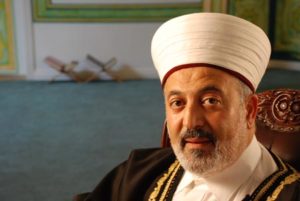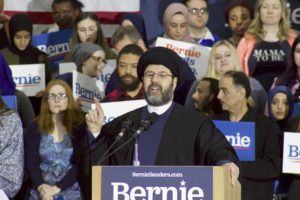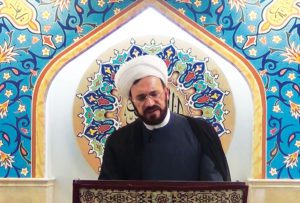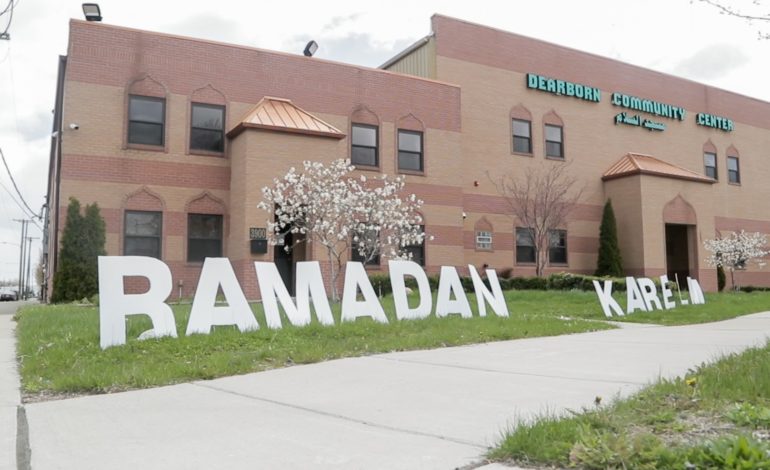DEARBORN — To kick off 2020’s first Ramadan weekend, The Arab American News spoke to local Muslim leaders representing some of the most frequented and well-know houses of worship, to find out how they plan to adapt their Ramadan plans in light of the continuing state-imposed COVID-19 related restrictions.
Unsurprisingly, mosques have shifted to online services and will continue to do so during Ramadan. Religious institutions in Dearborn, Dearborn Heights and other communities are also an important resource for relief in the form of food drives and other services. These efforts will be ramped up during the holy month to those in need, whether they observe Ramadan or not.
Starting Thursday night, The American Muslim Center in Dearborn plans to live stream a short speech 15 minutes prior to maghrib and iftar daily. Utilizing the Zoom video conferencing platform, the center will also host a supplication duaa (or prayer) after ishaa daily.
“This prayer will be to God almighty, to lift agonies, sickness and tragedies during this time,” the center’s imam, Mohammad Mardini, said. “This duaa will contain a verse from the Quran to remind people to come back to God and demonstrate the sacredness and the benefits of the holy month of Ramadan.”

Imam Mohammad Mardini
The center will also be giving out food assistance to families every week, delivered to the families’ homes and left on their porches. Mardini said that he does not want people to come out of their homes, especially vulnerable members of the community such as the elderly or those who cannot pick food up for themselves. The center will also help those in need of medication who cannot afford it. Mardini said his center is sensitive to those who have lost income due to the economic shutdown in the state.
“The community is always so generous with Ramadan dinners, inviting family, friends and neighbors,” Mardini said. “This year we will concentrate on extending help to families, our own students who have no source of income and to people who are sick and need urgent help.”
Imam Hassan Qazwini of the Islamic Institute of America in Dearborn Heights said his mosque plans to adapt and go forth with Ramadan observance during this extraordinary time.
“This is a very unusual month of Ramadan since everyone is staying home, maintaining social distancing and not attending houses of worship physically,” Qazwini said. “This is true for mosques, churches and synagogues around the world, which are effectively closed down due to the COVID-19 pandemic.

Imam Hassan Qazwini
“We, like many other religious institutions, have adapted to new ways of reaching out to our communities, which is by relying heavily on online services. All of the programs usually offered by our institute are being offered online this year, beginning with a circle of recitation of the Quran, which is open for anybody who wants to participate.”
Those interested in the online recitation can check-in through the Zoom app. More information can be found on the institute’s social media pages. An experienced instructor will join the online recitations to guide readers. The institution will also continue its traditional lectures and presentations in English and Arabic, including Nights of Power programs, live online. Audiences will also be able to pose questions during these lectures. Night and daytime supplication prayers will also be live streamed.
“I personally call for precaution,” Qazwini said of the possible reopening of the state in the coming months. “We don’t want to go back to where we were a few weeks ago, where the virus was spreading wildly, particularly in this geographical area. I would preach precaution and still ask people to stay home as much as possible and avoid going out as much as they can until we know it is reasonable and safe to do so.”
We as religious organizations should act very responsibly during this pandemic. We cannot risk lives when it comes to the mosque and our congregation. – Imam Mohammad Elahi
Imam Mohammad Elahi, spiritual leader of the Islamic House of Wisdom, said the COVID-19 pandemic is one of the saddest surprises of the 21st century and that the community was living through extraordinary circumstances at this time.
“We as religious organizations should act very responsibly during this pandemic,” Elahi said. “We cannot risk lives when it comes to the mosque and our congregation. Our position is that we have to follow the guidelines of the state, the medical community and all officials involved in this issue and consider their word seriously.”

Imam Mohammad Elahi
Elahi’s mosque is prepared to change its practices accordingly. It will also be relying heavily on Zoom conferences and its Facebook and YouTube accounts to supplement the physical gatherings and day-long religious ceremonies. The House of Worship began to shift services online in March. Prayers, recitation of the Quran and lectures will be conducted online day and night, according to a schedule provided to mosque goers. There will be a special Ramadan program starting half an hour after the beginning of iftar.
Community activists and leaders will also discuss various issues in live broadcasts in the evening over Zoom and Facebook. Food services will also continue through Ramadan. Elahi said his mosque has limited hours and conducts only essential business like funeral services and food distribution.
“It is very important we carry out services in safe and secure ways,” Elahi said. “We should take this as an opportunity for revolution in our soul.
“As the Quran mentions, the purpose of Ramadan is the purification of the heart and soul. We should use this time of crisis to be more humble, united and reflective and struggle against hatred and racism that this pandemic may have brought out.”






Leave a Reply